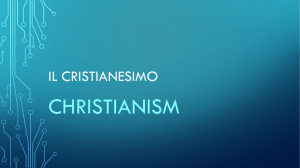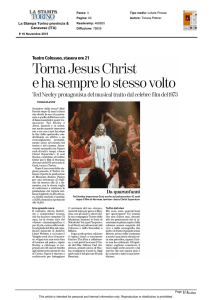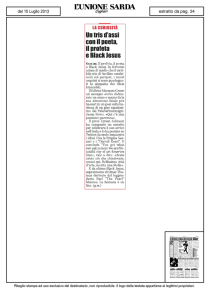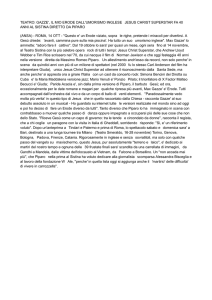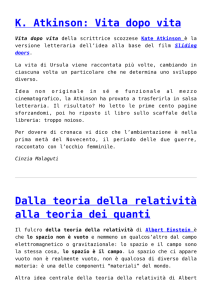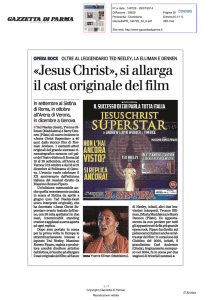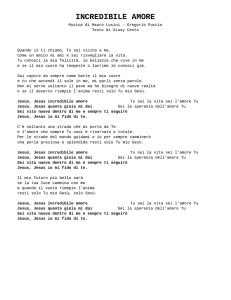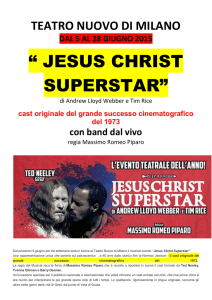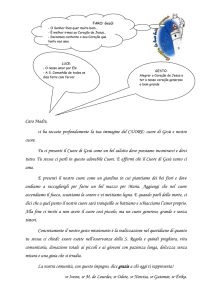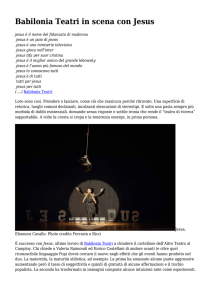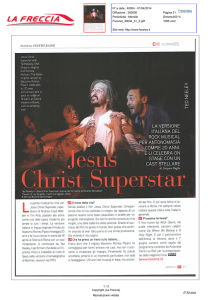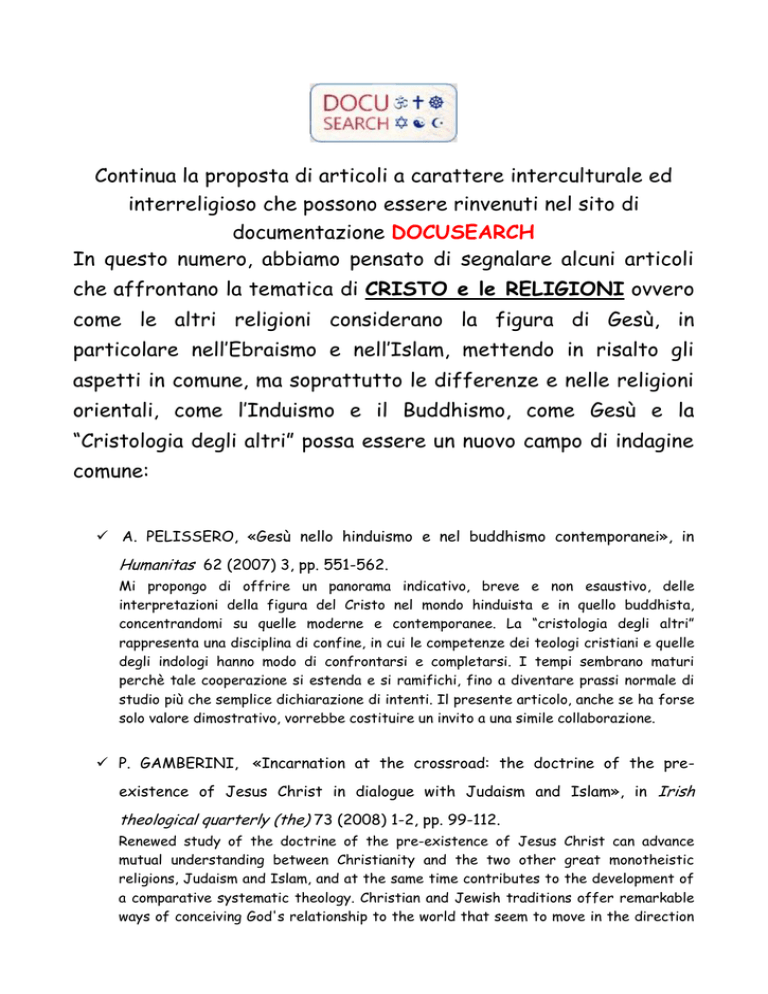
Continua la proposta di articoli a carattere interculturale ed
interreligioso che possono essere rinvenuti nel sito di
documentazione DOCUSEARCH
In questo numero, abbiamo pensato di segnalare alcuni articoli
che affrontano la tematica di CRISTO e le RELIGIONI ovvero
come le altri religioni considerano la figura di Gesù, in
particolare nell’Ebraismo e nell’Islam, mettendo in risalto gli
aspetti in comune, ma soprattutto le differenze e nelle religioni
orientali, come l’Induismo e il Buddhismo, come Gesù e la
“Cristologia degli altri” possa essere un nuovo campo di indagine
comune:
A. PELISSERO, «Gesù nello hinduismo e nel buddhismo contemporanei», in
Humanitas 62 (2007) 3, pp. 551-562.
Mi propongo di offrire un panorama indicativo, breve e non esaustivo, delle
interpretazioni della figura del Cristo nel mondo hinduista e in quello buddhista,
concentrandomi su quelle moderne e contemporanee. La “cristologia degli altri”
rappresenta una disciplina di confine, in cui le competenze dei teologi cristiani e quelle
degli indologi hanno modo di confrontarsi e completarsi. I tempi sembrano maturi
perchè tale cooperazione si estenda e si ramifichi, fino a diventare prassi normale di
studio più che semplice dichiarazione di intenti. Il presente articolo, anche se ha forse
solo valore dimostrativo, vorrebbe costituire un invito a una simile collaborazione.
P. GAMBERINI, «Incarnation at the crossroad: the doctrine of the preexistence of Jesus Christ in dialogue with Judaism and Islam», in Irish
theological quarterly (the) 73 (2008) 1-2, pp. 99-112.
Renewed study of the doctrine of the pre-existence of Jesus Christ can advance
mutual understanding between Christianity and the two other great monotheistic
religions, Judaism and Islam, and at the same time contributes to the development of
a comparative systematic theology. Christian and Jewish traditions offer remarkable
ways of conceiving God's relationship to the world that seem to move in the direction
of some kind of plurality in God. The Muslim doctrine of the pre-existent, eternal, and
uncreated Qur'an, without questioning the oneness of Allah, may be a step in the
direction of a more plural concept of God's nature. In particular, the Christian
doctrines of the Trinity and the Incarnation may help develop a theology of encounter
with Jews and Muslims.
A. BESANCON, «Maometto e Gesù, i confini del dialogo», in Docete 62 (2007)
7, pp. 318-322.
La tesi sostenuta da questo accademico di Francia è che non è possibile, né utile, in
nome di un certo buonismo dialogico, annullare o minimizzare le profonde differenze
tra Gesù e Maometto, tra il cristianesimo e l'Islam. Tra questi due mondi ci sono
certamente dei richiami e delle assonanze, ma prevalgono le diversità.
M. AMALADOSS , «Other Religions and the Salvific Mistery of Christ», in
Vidyajoti journal of theological reflection 70 (2006) 1, pp. 8-23.
The author explains in a lucid article how the religions of the world may legitimately
be seen as “participated meditations” of the saving mystery of Christ, to use the
words of the late Pope. Their role is proper to them and different from the role of
the Church.
A. RODRIGUEZ CARMONA, « La Faz de Jesus vista por el Judaismo», in Facies
Domini 1 (2009) 1, pp. 13-34.
The article revises the history of Jewish views of Jesus. In the first Christian
centuries, Jesus is seen as a deviant Jew. Due to the Christian hegemony in Europe,
Jesus will be portrayed as a “manzer”, a bastard. Still, the Jewish ancient sources
offer us interesting testimonies of Jesus. A more positive vision arises in the Middle
Ages and is consolidated in the 19th and 20th centuries. To conclude with, the
positions of some Jewish contemporary authors about Jesus are reviewed (Buber,
Klausner, Flusser, Ben Horim, Vermes, Lapide, Zwi Werblowsky, Neusner).
H. H. HENRIX, «Jesus Christ in Jewish-Christian Dialogue», in Theology Digest
53 (2006) 2, pp. 103-112.
Christianity believes that Jesus Christ is the Messiah but also the incarnate Son of
God. This claim, however, is not only denied by Jews, but is incomprehensible to them.
How can Christians and Jews understand the incarnation in such a way that the
fruitful dialogue between Christians and Jews, given impetus by Vatican II and
especially by Nostra aetate, can continue?

